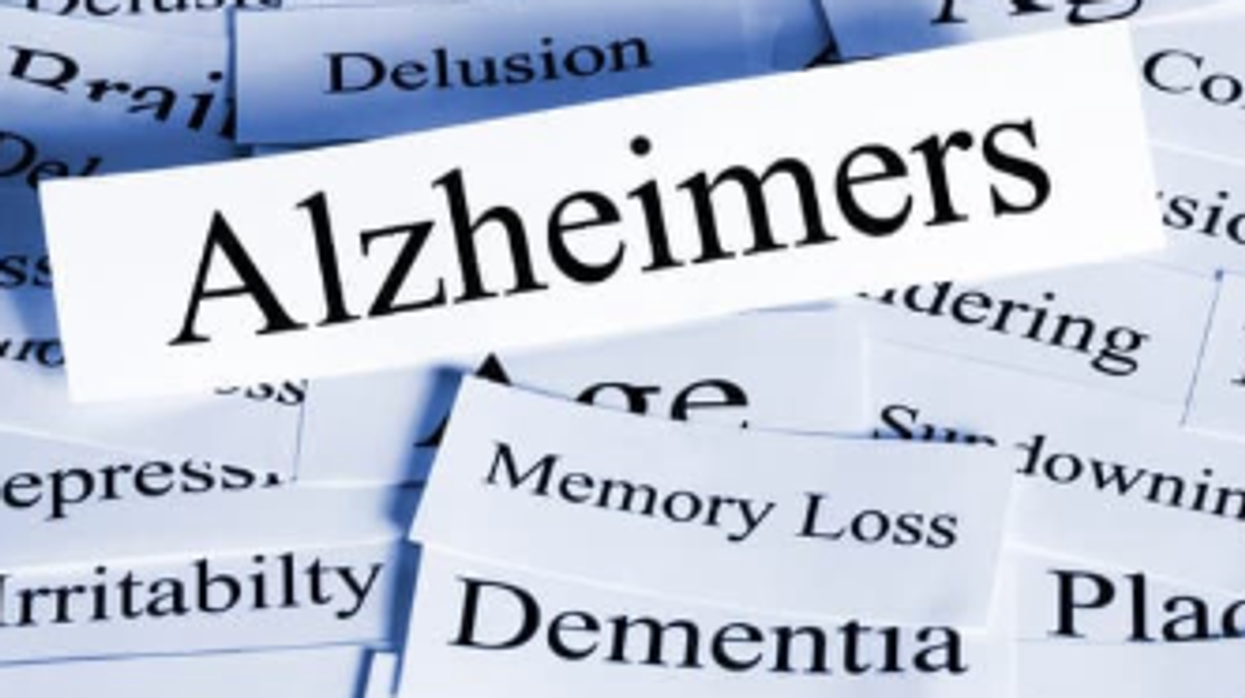There's been a new development in the care for and prevention of Alzheimer's Disease. Worldwide, more than 50 million people have the tragic disease that robs you of your memories. By 2050, more than 130 million people will suffer from Alzheimer's Disease, according to Alzheimer's Disease International.
In 2020, researchers Manuel Montero-Odasso, Zahinoor Ismail, and Gill Livingston published a study in Alzheimer's Research and Therapy that suggests up to one-third of Alzheimer's cases could be prevented by paying attention to and confronting the risk factors that up a person's chances of developing the disease. Evidence for prevention comes primarily from the Lancet Commission on Dementia Prevention, Intervention and Care.
According to Science Alert, there are 14 different risk factors that may lead to the development of Alzheimer's: traumatic brain injury, hypertension, depression, diabetes, smoking, obesity, high cholesterol levels, low physical activity levels, too much alcohol consumption, too little education, vision loss, hearing loss, social isolation, and air pollution. Of course, it can be hard to recall each of those conditions, which led to the development of SHIELD, an easy to remember acronym that stands for Sleep, Head Injury prevention, Exercise, Learning, and Diet.
SHIELD groups together that biggest dementia risk factors in a clear and effective way for people to remember and take an active part in their own prevention.
- YouTube www.youtube.com
S is for Sleep
Getting good quality sleep is essential in preventing Alzheimer's and protecting your brain. According to Science Direct, when you sleep less than five hours per night and wake frequently, it increases the risk of developing Alzheimer's Disease. Good sleep helps your brain function and improves memory, mood, and our ability to learn. Chronic insomnia leads to the build up of amyloid-beta protein in the brain which may play a part in the development of Alzheimer's.
And it isn't just dementia that poor sleep contributes to. It can also increase your likelihood for high blood pressure, obesity, and depression, which are all risk factor for Alzheimer's.
H and I are for Head Injury
This one seems like a no-brainer, but, weirdly, preventing head injuries is frequently overlooked when talking about dementia. However, there are strong links between concussions, traumatic brain injuries (TBI), and a higher risk for developing Alzheimer's. (And it isn't just athletes that get hit in their noggins.)
Steps should be taken to protect your head from injury throughout your life as head injuries play a significant role in brain health and staving off Alzheimer's, according to a 2020 study in Journal of Alzheimer's Disease.

E is for Exercise
Exercise is the single most important thing a person can do to reduce the risk of developing Alzheimer's Disease as it reduces the chances of obesity, high blood pressure, high cholesterol, and depression. Exercise also promotes the growth of new brain cells as wells as supports memory and emotional health, Science Alert reported.
In short, exercise is good for the head, the heart, and all parts of you. Regular exercise, even in small amounts, contributes to better brain aging..
L is for Learning
Learning throughout your whole life is one of the strongest protective actions you can take to avoid Alzheimer's Disease. Having lower education levels can lead to a greater risk of Alzheimer's, The Lancet reported. Learning teaches the brain to function despite the damaging effects of age or disease.
People who continued to learn throughout life maintained a better mental function even after they were deep into an Alzheimer's diagnosis. Learning a new language and doing crossword puzzles are just two of the things you can do to build brain health.
It's never too early (or too late) to learn another language or to challenge your brain. Boosting your cognitive reserve boosts your brain against AD, The Conversation reported.
- YouTube www.youtube.com
D is for Diet
And finally, your diet plays a big role in brain health and the prevention of dementia. There is no one food that wards off dementia, but rather there's a group of nutrient-rich foods to support the health of your brain according to author and former director of the Rush Institute for Healthy Aging and the MIND Center for Brain Health at Rush University Medical Center in Chicago Dr. Martha Clare Morris. In her book, Diet for the Mind (2017), Dr. Morris notes that a healthy diet lowers the risk of dementia when whole fruits, vegetables, grains, nuts and fish are consumed rather than red meat, processed food and sweets.
The Mediterranean diet, in particular, shows promising results in protecting your brain from cognitive decline. The diet focuses on plant-based foods with olive oil as the primary fat source.



















 What foods would you pick without diet culture telling you what to do?
What foods would you pick without diet culture telling you what to do?  Flexibility can help you adapt to – and enjoy – different food situations.
Flexibility can help you adapt to – and enjoy – different food situations.
 Anxious young woman in the rain.Photo credit
Anxious young woman in the rain.Photo credit  Woman takes notes.Photo credit
Woman takes notes.Photo credit 
 Revenge can feel easier than forgiveness, which often brings sadness or anxiety.
Revenge can feel easier than forgiveness, which often brings sadness or anxiety. 
 In the past two years, two malaria vaccines have become available for babies starting at 5 months of age.
In the past two years, two malaria vaccines have become available for babies starting at 5 months of age. By exploiting vulnerabilities in the malaria parasite’s defense system, researchers hope to develop a treatment that blocks the parasite from entering cells.
By exploiting vulnerabilities in the malaria parasite’s defense system, researchers hope to develop a treatment that blocks the parasite from entering cells. Created with
Created with 

 Volunteers who drive homeless people to shelters talk with a person from Ukraine in Berlin on Jan. 7, 2026.
Volunteers who drive homeless people to shelters talk with a person from Ukraine in Berlin on Jan. 7, 2026.
 Tasks that stretch your brain just beyond its comfort zone, such as knitting and crocheting, can improve cognitive abilities over your lifespan – and doing them in a group setting brings an additional bonus for overall health.
Tasks that stretch your brain just beyond its comfort zone, such as knitting and crocheting, can improve cognitive abilities over your lifespan – and doing them in a group setting brings an additional bonus for overall health. Overdoing any task, whether it be weight training or sitting at the computer for too long, can overtax the muscles as well as the brain.
Overdoing any task, whether it be weight training or sitting at the computer for too long, can overtax the muscles as well as the brain.